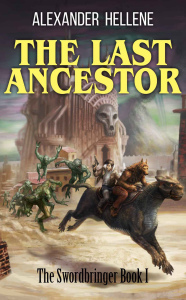The Intersection That Cannot Be Ignored
[image error]
“I just want apolitical entertainment!” some say. “The creator’s politics don’t matter!”
Except they do. Not to your enjoyment of said art–plenty of stuff is good and can be enjoyed even if you personally disagree with the artist’s politics or personal life.
That said, the creator’s politics and overall worldview will by necessity influence their art. This goes for the people at the top as well as at the bottom. All fiction is message fiction. The questions are: what’s the message and how is it being delivered?
In order to get an idea of this before spending money and time on a book or movie or whatever, you can look at the people behind it.
Commenter Hardwicke Benthow recently left an excellent comment on this post explaining this concept and why it matters. It’s such a good comment, I’m reproducing it in whole here:
When it comes to the MCU in particular, the politics behind the scenes are a long and interesting story.
Marvel Studios was once owned by the Marvel corporation, whose CEO was Isaac “Ike” Perlmutter. When Iron Man and The Incredible Hulk (both released in 2008) were made, Marvel (including its movie division) was an independent company run by Perlmutter.
Now, Perlmutter was not a flawless Marvel CEO. He was hard to work with, was a notorious skinflint who cared about money above all else, assumed that movies led by female and non-white superheroes would inherently financially underperform, etc. But while he had his issues, he may have served to check and balance a separate (and far worse, in my opinion) set of issues that his once-underling Kevin Feige seems to have.
[image error]Isaac Perlmutter
As Marvel CEO, Perlmutter cared about money above all else. And I’m sure that he was smart enough to know that heavy-handed social justice programming doesn’t help sell tickets or toys. One person who worked under Perlmutter stated, “Ike Perlmutter neither discriminates nor cares about diversity, he just cares about what he thinks will make money.” Furthermore, Perlmutter was (and still is) right-wing in his politics. So much so that he’s currently an adviser to President Trump, and has been spotted at both the White House and Mar-a-Lago. He is even one of President Trump’s biggest donors, which Armie Hammer publicly “cancelled” him for on Twitter last year.
Unfortunately, Perlmutter fell for the smooth-talking Bob Iger, who convinced him to sell Marvel to Disney (a deal that went through in 2009).
While Kevin Feige was (and still is) the creative powerhouse of the studio, Perlmutter and his Marvel office in New York held the power of the purse, and Feige had to run all decisions through him. This continued even well into the Disney era of Marvel Studios, as Disney initially left the Marvel command structure untouched (presumably seeing how successful Marvel Studios already was and figuring “if it ain’t broke, don’t fix it.”)
So keep in mind that Perlmutter, who is right-wing in his politics and wouldn’t dream of unnecessarily risking financial loss, was essentially the head honcho on every MCU movie until and including Captain America: Civil War. Feige had to clear everything through him. When you consider this, it’s no wonder that every MCU movie released from 2008-2015 avoided going full-blown “woke”.
But during the production of Captain America: Civil War (2015), Feige and Perlmutter had a serious falling out over creative differences resulting from Perlmutter’s concerns over the movie’s budget. This battle left Feige so frustrated that he threatened to quit, so Disney integrated Marvel Studios directly into the Disney command structure, thus cutting off all influence from Perlmutter’s New York office and effectively ousting Perlmutter from his leadership position at Marvel Studios. Feige now answers directly to Disney’s Alan Horn. Although shorn of all creative control over the movies, Perlmutter still had a nominal position at the Marvel corporation until 2020, when he was completely fired (less than a year after Armie Hammer outed him as a Tump donor; coincidence?).
If you look at the chronology of the MCU movies and look for social justice messaging or pandering present or not present in each movie, it becomes instantly obvious that it was not long after Perlmutter’s 2015 departure that the plague began to grow within the MCU. Although they are often greenlit and announced far in advance, a typical Marvel movie goes into actual pre-production about two years before premiering on theater screens. That means that movies starting pre-production around 2015 and premiering around 2017 would be the first ones to be created from beginning to end with no significant influence from Perlmutter.
And right on schedule, Spider-Man: Homecoming and Thor: Ragnarok (both released in 2017) had an amount of “wokeness” that was unprecedented for the MCU at the time. This was especially the case with Ragnarok, which is subtextually about the necessity of destroying Western civilization. Its director, Taika Waititi, has been shockingly candid about his extreme disrespect for source material, fans, and Western civilization. I’ve documented the extreme wokeness of the movie and its director in these two comments at John C. Wright’s blog:
http://www.scifiwright.com/2020/03/retrocausality-at-marvel-comics/#comment-4853439265
http://www.scifiwright.com/2020/03/retrocausality-at-marvel-comics/#comment-4857485069
Then in 2019, Marvel released Captain Marvel, a blatant third-wave feminist propaganda movie that, for extra woke points, also ruined the Skrulls by portraying them as innocent refugees oppressed by the colonialist Kree and separated from their families.
Both Kevin Feige and Bob Iger have let slip that Perlmutter’s 2015 ousting was at least partially because of his opposition to what they viewed as “diversity” (keep in mind that among leftists like Feige and Iger, that word doesn’t hold it’s true meaning).
In his memoir, The Ride of a Lifetime, Iger wrote that he, Alan Horn, and Kevin Feige felt that the predominance of white male characters in the MCU was problematic and came up with plans to change it, and that Ike Perlmutter and the “New York team” (those working under Perlmutter in Perlmutter’s New York Marvel office) were against these plans.
[image error]Kevin Feige
Furthermore, Iger states that he called Perlmutter to demand that he greenlight Black Panther and Captain Marvel against his will. This incident would have been about a year or two before Perlmutter was eventually removed from his Marvel Studios position by Iger, and a couple of years before either Black Panther or Captain Marvel went into actual pre-production (the greenlighting phase comes quite earlier than pre-production–years earlier in some cases).
Iger also mentions being extremely impressed with Ta-Nehisi Coates in general and his run on Black Panther in particular. Coates is a far-left political activist and his Black Panther run (not to mention everything else that he’s written) heavily reflects that.
When asked in an interview if Perlmutter’s 2015 ousting was due to his lack of support for diversity, Kevin Feige replied “That’s part of it.”
Despite Perlmutter’s imperfections, I think that Feige was at his best when he was reined in by him. Now that Feige is free of Perlmutter’s control, he can run things the way that he wants to. And that includes not only promoting wokeness in the movies, but also encouraging his actors to be Twitter SJWs.
Chris Evans (who was shy and rarely talked about politics when first cast as Captain America, but has become a rabid SJW on Twitter more recently) said the following:
“Marvel has never said anything. On the contrary — when I bump into Kevin Feige the first thing out of his mouth is ‘Man, I love what you’re doing [on Twitter].’”
And Feige said this about Evans’ Twitter activism:
“I don’t see it as trash-talking. I see it as very astute, very honorable, very noble, very Cap-like. Commentary and questioning. I’ve said to him, ‘You’re merging! You and the character are merging!’”
Think about that. This is the boss of a major movie studio encouraging one of the actors working for him to be a Twitter SJW, and filling his head with nonsense about this being the same as becoming like Captain America. That’s unprofessional at best.
It’s a shame that Chris Evans couldn’t learn some lessons from the version of Captain America that he played, rather than from Kevin Feige. The movie version of Captain America is a small-government, anti-globalist, Christian patriot.
In Captain America: The First Avenger (2011), the Red Skull shouts “I have seen the future, Captain. There are no flags!”, to which Cap replies “Not my future!”
In The Avengers (2012), Cap gets ready to pursue Thor and Loki, when Black Widow warns him not to go after them, saying, “These guys come from legend. They’re basically gods.” He replies by saying “There’s only one God, Ma’am. And I’m pretty sure he doesn’t dress like that.”
In Captain America: The Winter Soldier (2014), Nick Fury reveals that S.H.I.E.L.D. (essentially a fictionalized FBI or CIA) is creating a new surveillance/weapons program called Project Insight that uses artificial intelligence to predict which people will become terrorist threats and automatically kill them with giant drones before they act. Cap disagrees with the decision to create this program, believing that this is a vast overreach of power and could be abused. Cap is proven right when it turns out that S.H.I.E.L.D. is infested by HYDRA agents who plan on using Project Insight to kill everyone who the AI system predicts would stand in the way of their new world order (a phrase actually used by a HYDRA member in the movie).
In Captain America: Civil War, Cap disagrees with the Avengers’ decision to sign the Sokovia Accords, an agreement that would force the Avengers to only go on missions that are approved by the World Security Council (essentially a fictionalized United Nations), as he believes that the Avengers need to be capable of acting independently of foreign authorities.
Interestingly, all of those movies except the last were made fully during Ike Perlmutter’s reign, and the last was made during its last days. None of the post-Perlmutter Marvel movies had featured scenes or themes like those that I just mentioned.
I hate to be the bearer of bad news, but you cannot avoid this stuff. The answer, however, isn’t to strive for some mythical apolitical purity, but to have your art teach true, beautiful, and good messages. After all, if you’re on this side of the divide, that’s our bread and butter. Notice how even the best art made by left-wingers seems to embody traditional right-wing principles of heroism, honor, duty, sacrifice, and objective good versus objective evil (see, e.g., Star Wars, Harry Potter, as well as the best of the MCU, as Hardwicke pointed out above).
You know, all the stuff they mock, belittle, and work to undermine in the real world.
Positive values abound in my fiction. Check it out for yourself!




